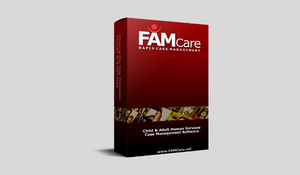Family Care Management: Supporting Families in Need

Family care management plays a critical role in supporting families who face complex challenges in today's fast-paced world. From managing health crises to navigating social and emotional difficulties, family care management is a comprehensive approach that ensures families receive the necessary support to thrive.
What is Family Care Management?
Family care management is a holistic and coordinated approach to providing essential services and support to families in need. It involves identifying, assessing, and addressing the physical, emotional, social, and financial needs of families through a structured system of care.
This system provides healthcare, social support, legal advice, and childcare assistance to help families in need receive complete care.
Family care management is essential for families facing long-term illnesses, disabilities, or mental health challenges, providing coordinated care to improve overall quality of life and ensure appropriate support for all members.
Key Components of Family Care Management
- Assessment: Understanding the specific needs of the family, including healthcare, emotional well-being, financial challenges, and social dynamics.
- Coordination: Connecting families with a network of professionals, including healthcare providers, social workers, and legal advisors, to address diverse needs.
- Advocacy: Ensuring families receive fair access to services and support, often navigating the complexities of healthcare systems or legal frameworks.
- Follow-up: Continuously monitoring and adjusting the care plan to ensure that it remains relevant to the family’s evolving needs.
The Importance of Family Care Management
Families in crisis often struggle with multiple responsibilities, leading to caregiver burnout, financial strain, and stress. Family care management provides a structured support system to ease these pressures, allowing families to prioritize their well-being.
Some of the significant benefits of family care management include:
- Reducing Stress for Caregivers: Caregivers often juggle personal duties with family crises. Family care management offers support by sharing responsibilities and providing professional help, giving caregivers time to focus on their well-being.
- Access to Expert Resources: Many families are unsure where to turn when faced with legal, medical, or social challenges. Family care management connects them with a team of professionals who can offer expert advice and guidance.
- Improved Outcomes: With a coordinated care plan in place, families are more likely to see positive outcomes, including better health for their loved ones and improved emotional and mental well-being for all members.
- Financial Support: Through advocacy and assistance with financial planning, family care managers help families access benefits, grants, and other financial resources that can ease the burden of care.
Best Practices in Family Care Management
To deliver effective family care management, organizations and care managers must adopt a set of best practices that ensure families receive the most appropriate and timely support. Here are some key strategies to ensure success in family care management:
1. Tailored Care Plans
Every family is unique, and their challenges vary widely. A one-size-fits-all approach will not work in family care management.
The most effective care plans are those tailored to the specific needs of the family, taking into account cultural, social, and individual factors that influence the family’s situation.
2. Holistic Approach to Care
Family care management should meet the physical, emotional, and social needs of all family members, not just medical or financial concerns.
It involves ensuring emotional and mental health needs are supported, with access to counseling or mental health services when necessary.
3. Strong Communication Channels
Effective family care management relies on clear, consistent communication between the care team and the family. Regular updates on the care plan keep families informed and involved in decisions, building trust and allowing for swift adjustments when needed.
4. Empowerment Through Education
Empowering families through education on their rights, resources, and self-care is key to family care management. It enables them to make informed decisions and actively participate in their care.
5. Collaboration Across Services
No single provider can meet all family needs. Collaboration among healthcare, social services, legal, and financial professionals is vital for comprehensive care, ensuring all aspects are addressed.
Effective Strategies for Family Care Managers
Family care managers are the backbone of family care management, acting as the primary liaison between the family and the network of professionals and services available to them. Here are some effective strategies that care managers can use to provide the best support:
1. Conduct Thorough Needs Assessments
The initial step in family care management is performing a needs assessment. Care managers should gather input from all family members to fully understand their situation and create a care plan that addresses their specific needs.
2. Create Flexible Care Plans
Families often experience changes in their circumstances, so care plans should be flexible and adaptable. Care managers must remain agile, ready to adjust care strategies as new challenges arise, whether they are medical, financial, or social.
3. Prioritize Self-Care for Caregivers
Caregiver burnout is a significant concern in family care management. Care managers must recognize the need for caregivers to take time for self-care and provide them with resources, such as respite care services or support groups, to ensure they do not become overwhelmed.
4. Leverage Technology
Technology plays a crucial role in modern family care management. Care managers can use software systems like FAMCare to streamline care coordination, track progress, and communicate with families more effectively.
Tools like this help to ensure that care is delivered efficiently and that all parties involved have real-time access to the information they need.
Resources for Families in Need
Families facing challenges need access to reliable resources that can provide guidance and support. Here are some key resources that care managers often recommend:
- Healthcare Services: Connecting families with local healthcare providers and specialists for physical and mental health support.
- Financial Aid Programs: Government grants, nonprofit assistance, and other financial programs can offer relief to families struggling with care-related expenses.
- Legal Support: Families dealing with legal issues, such as guardianship or power of attorney, can access legal advisors for expert advice.
- Community Support Groups: Social workers can connect families with local support groups, providing a sense of community and shared experience.
Conclusion: A Path Toward Stronger Families
 Family care management supports families during difficult times by providing resources, effective strategies, and essential services, making a significant impact on those in need.
Family care management supports families during difficult times by providing resources, effective strategies, and essential services, making a significant impact on those in need.
If you are looking to enhance your organization’s family care management efforts, consider investing in tools like FAMCare, which is designed to streamline care coordination and improve outcomes for the families you serve.
Visit FAMCare today to learn more about how you can better support families in need.

